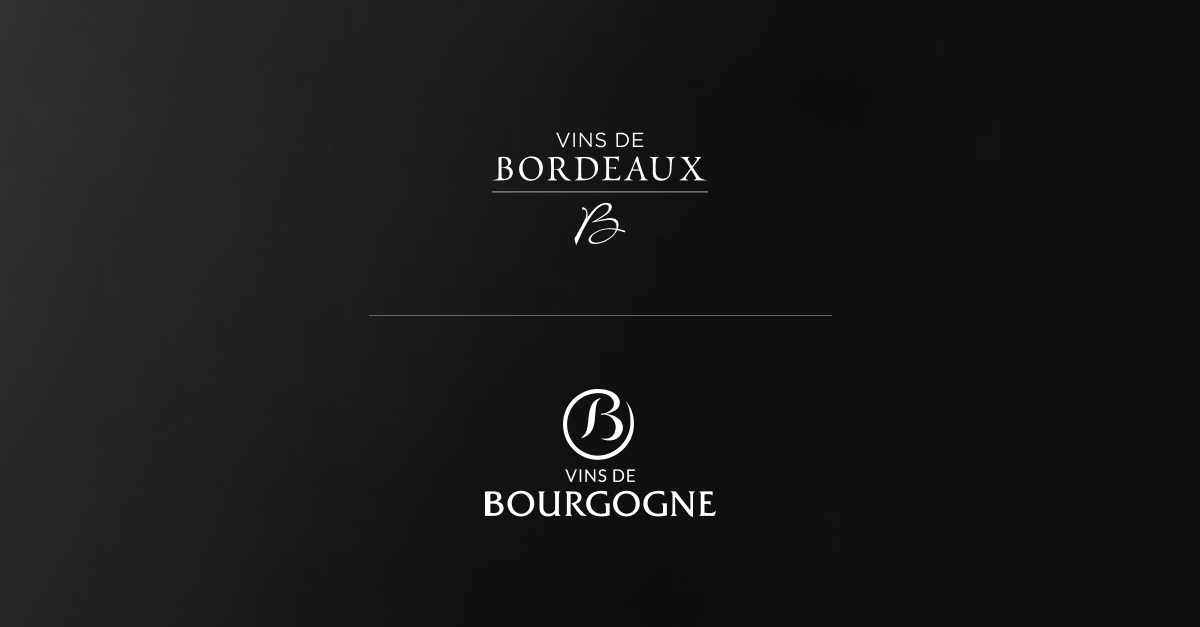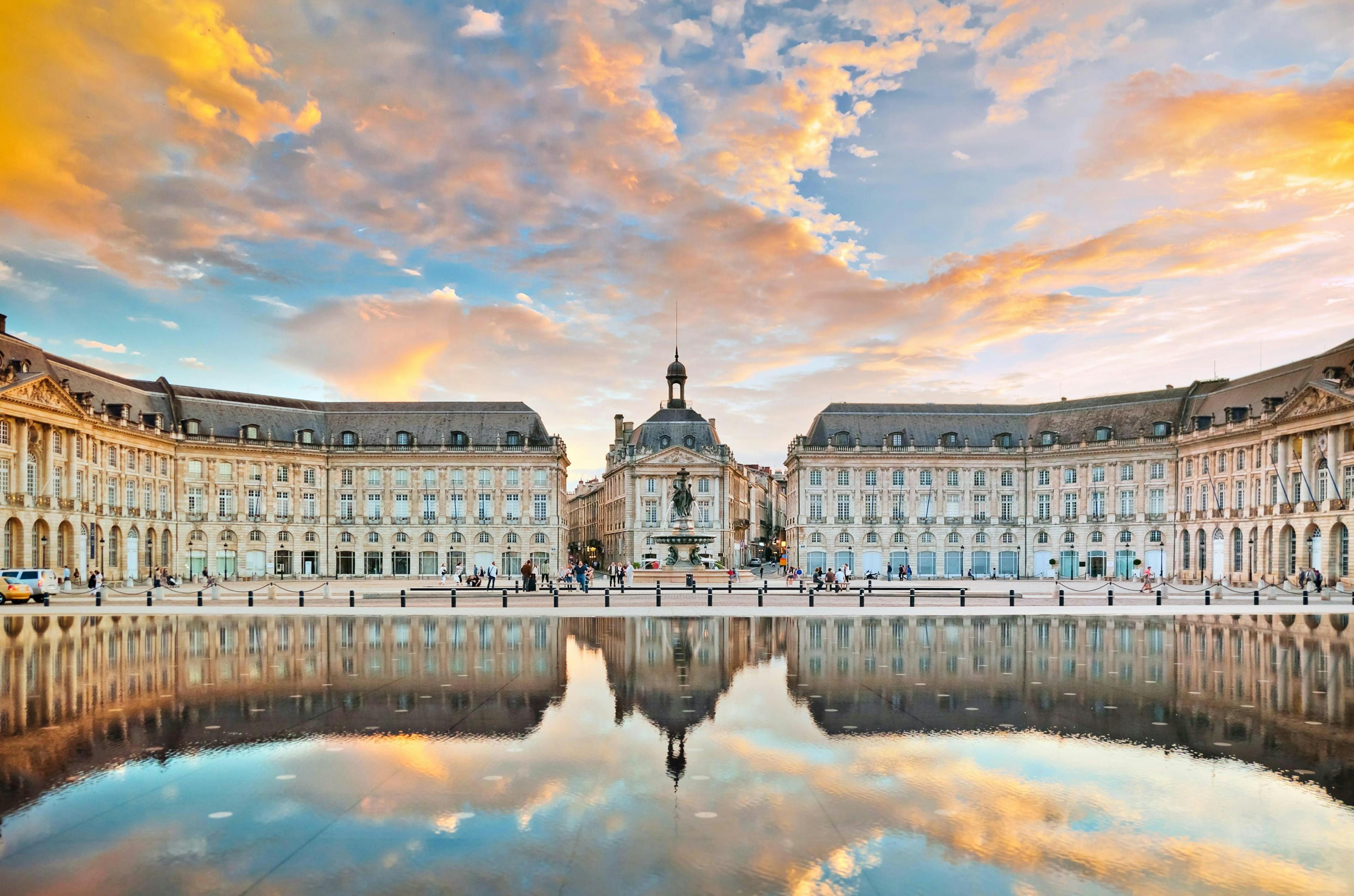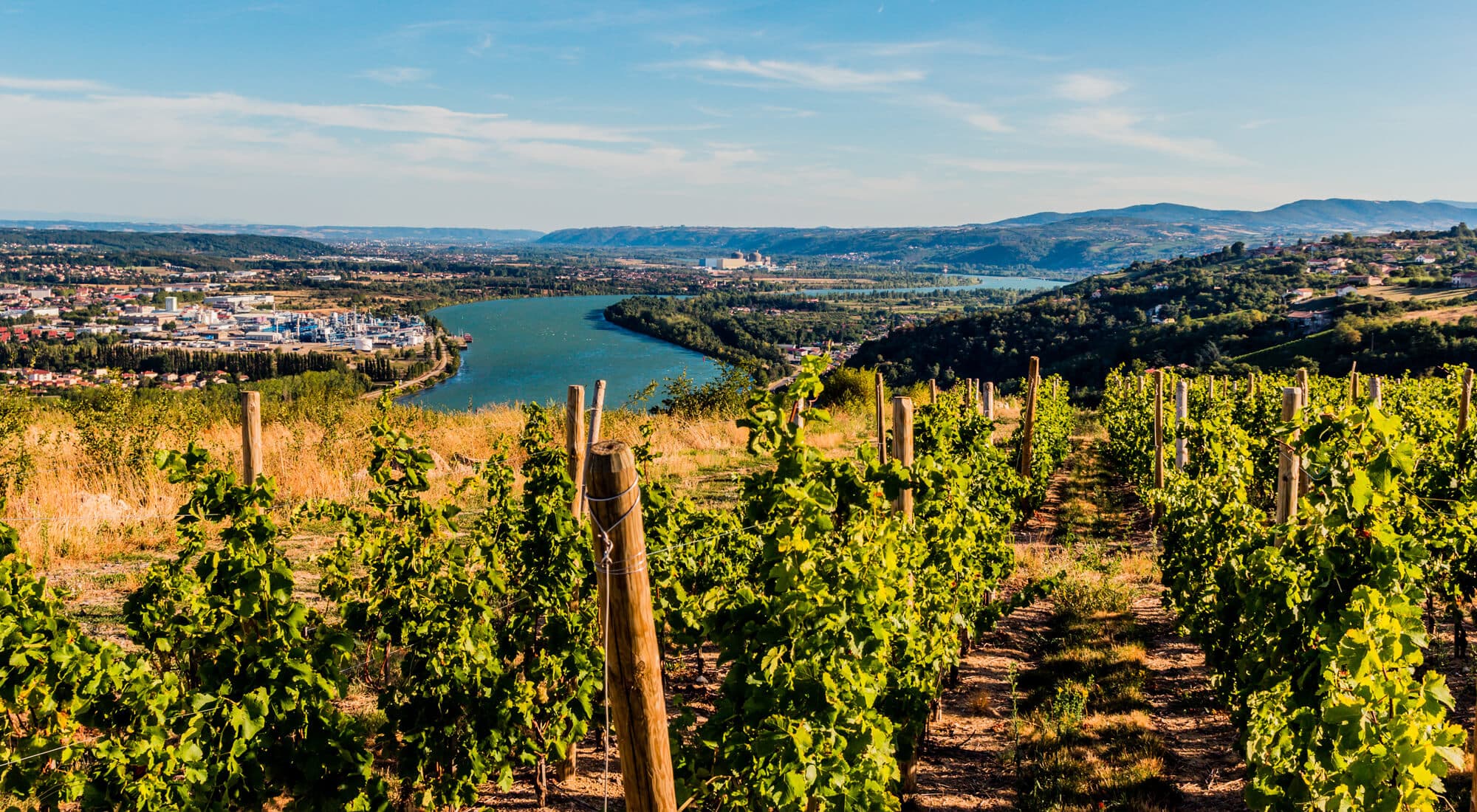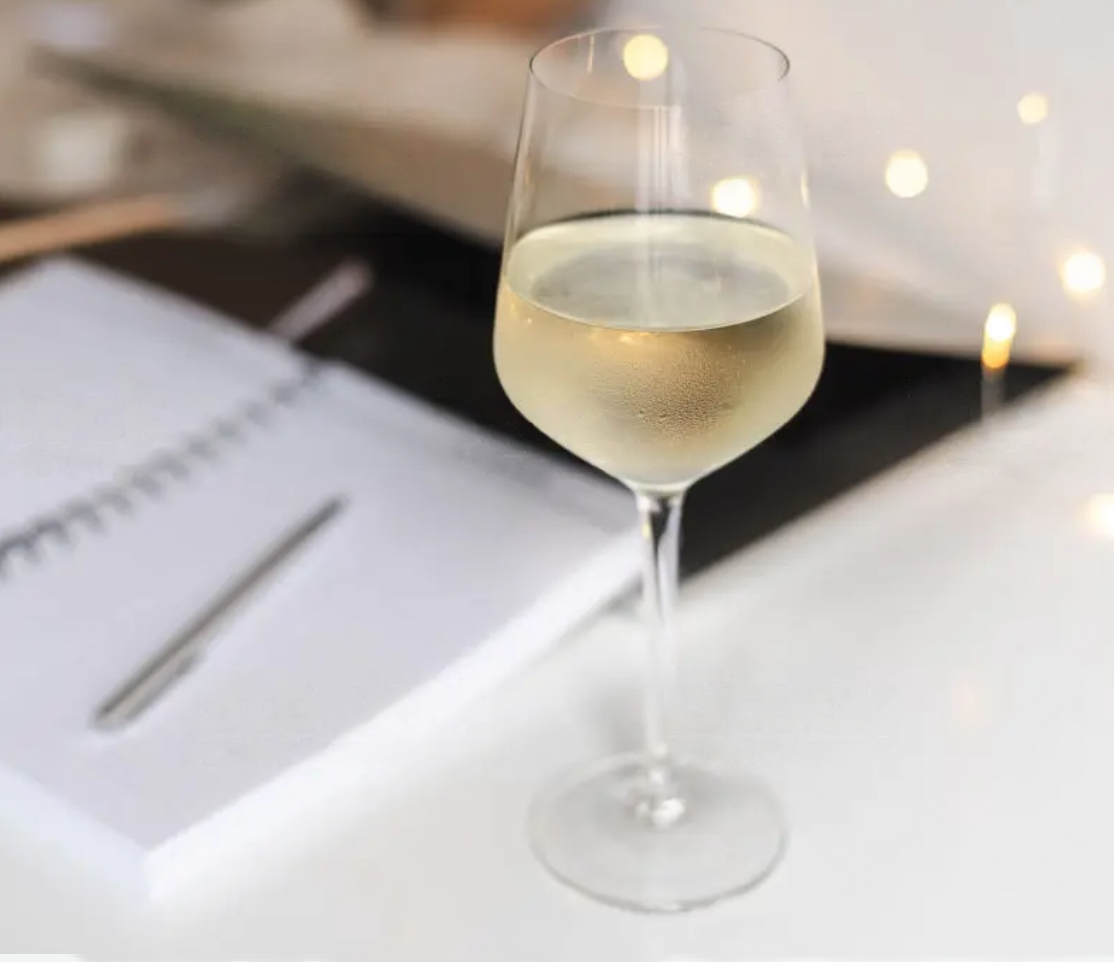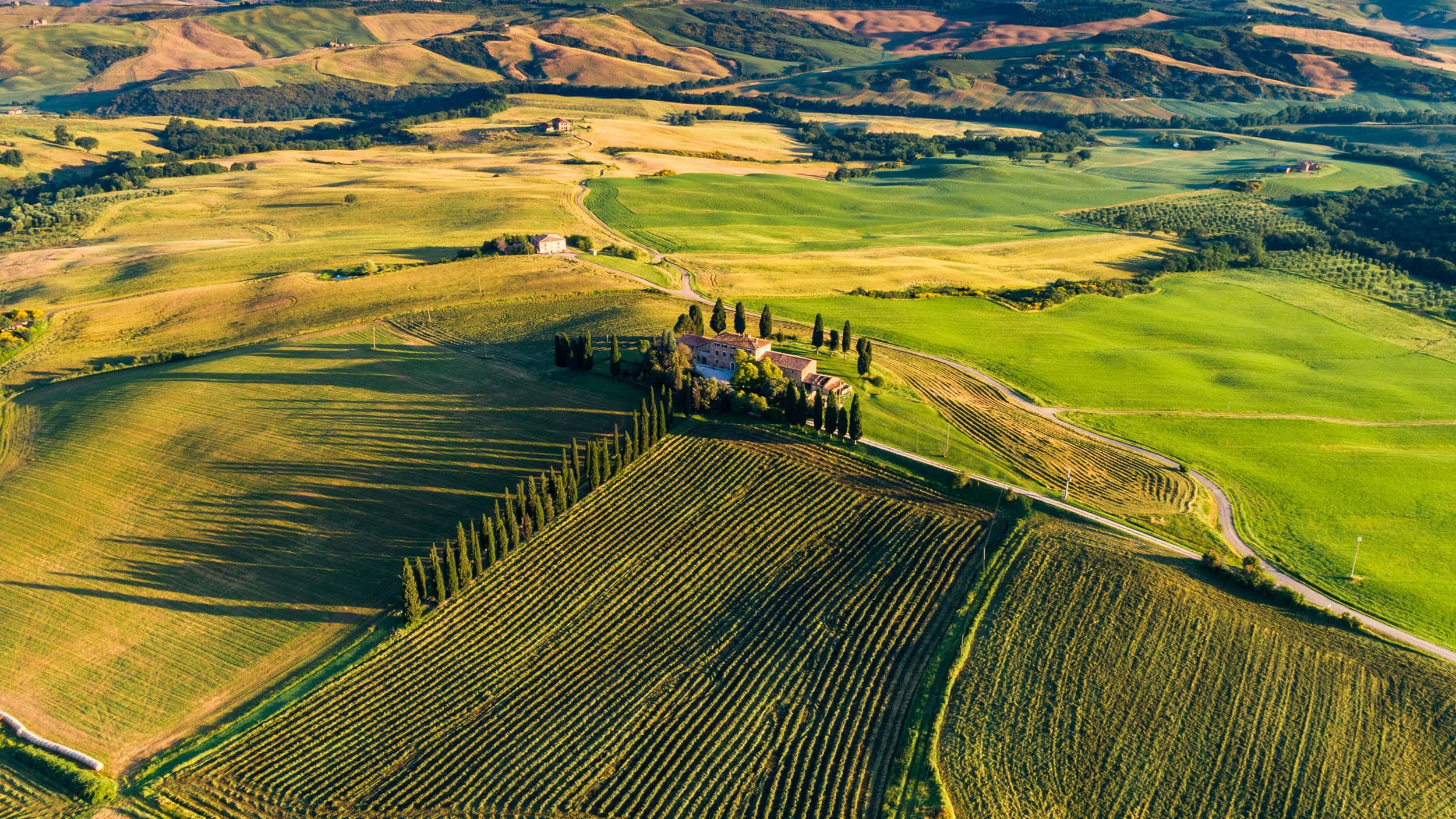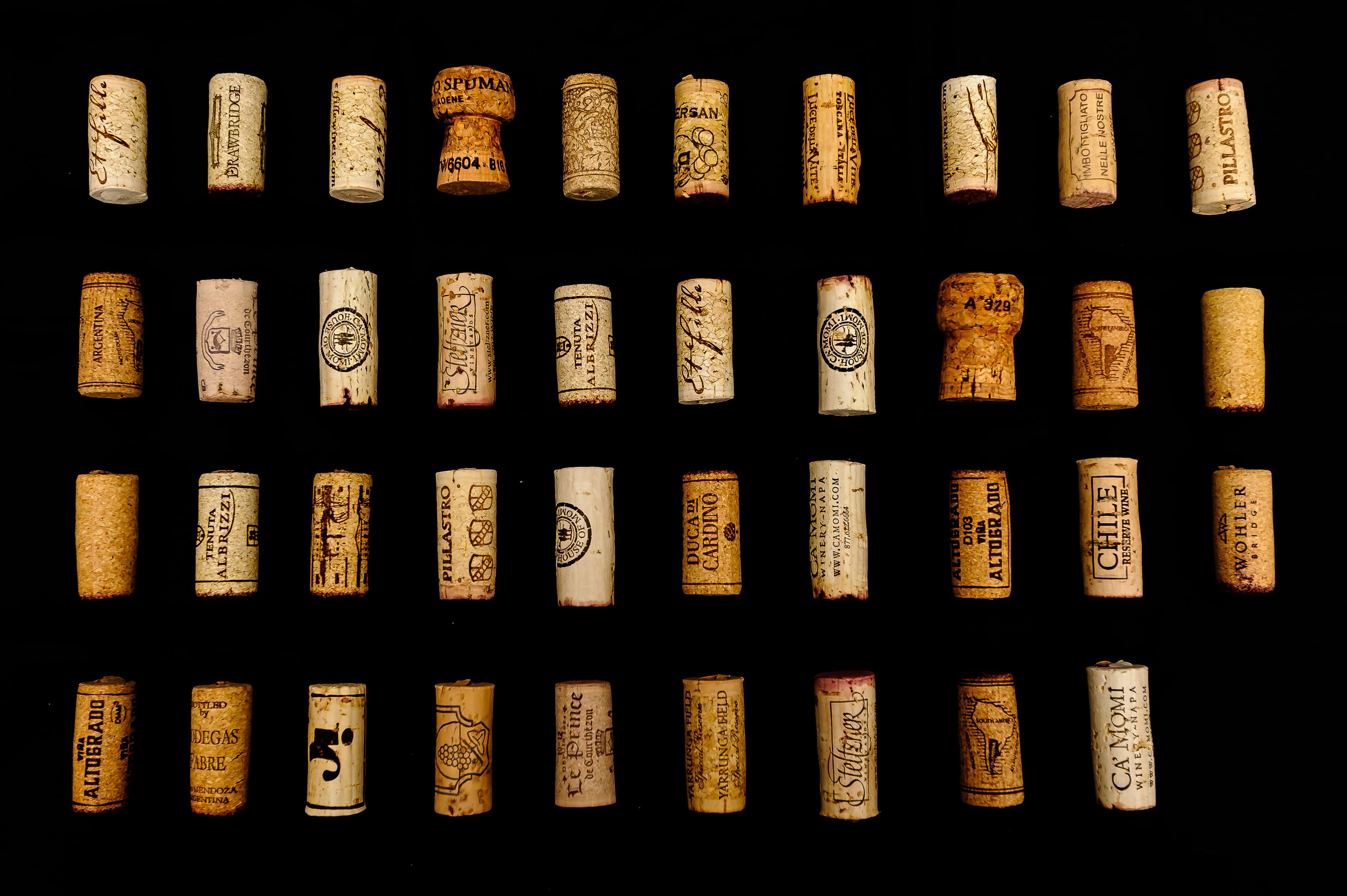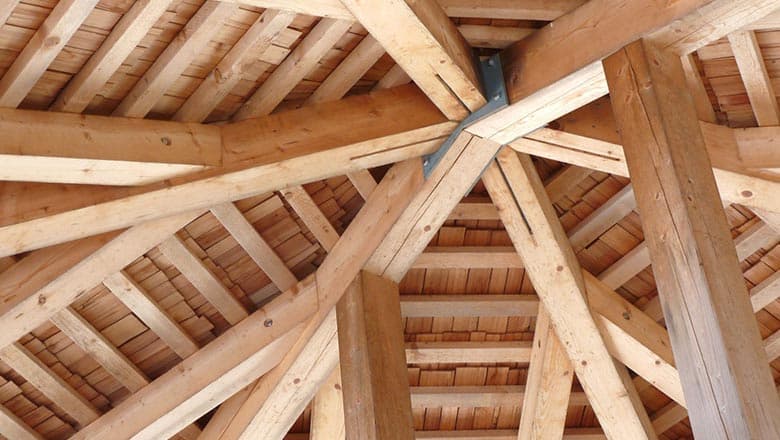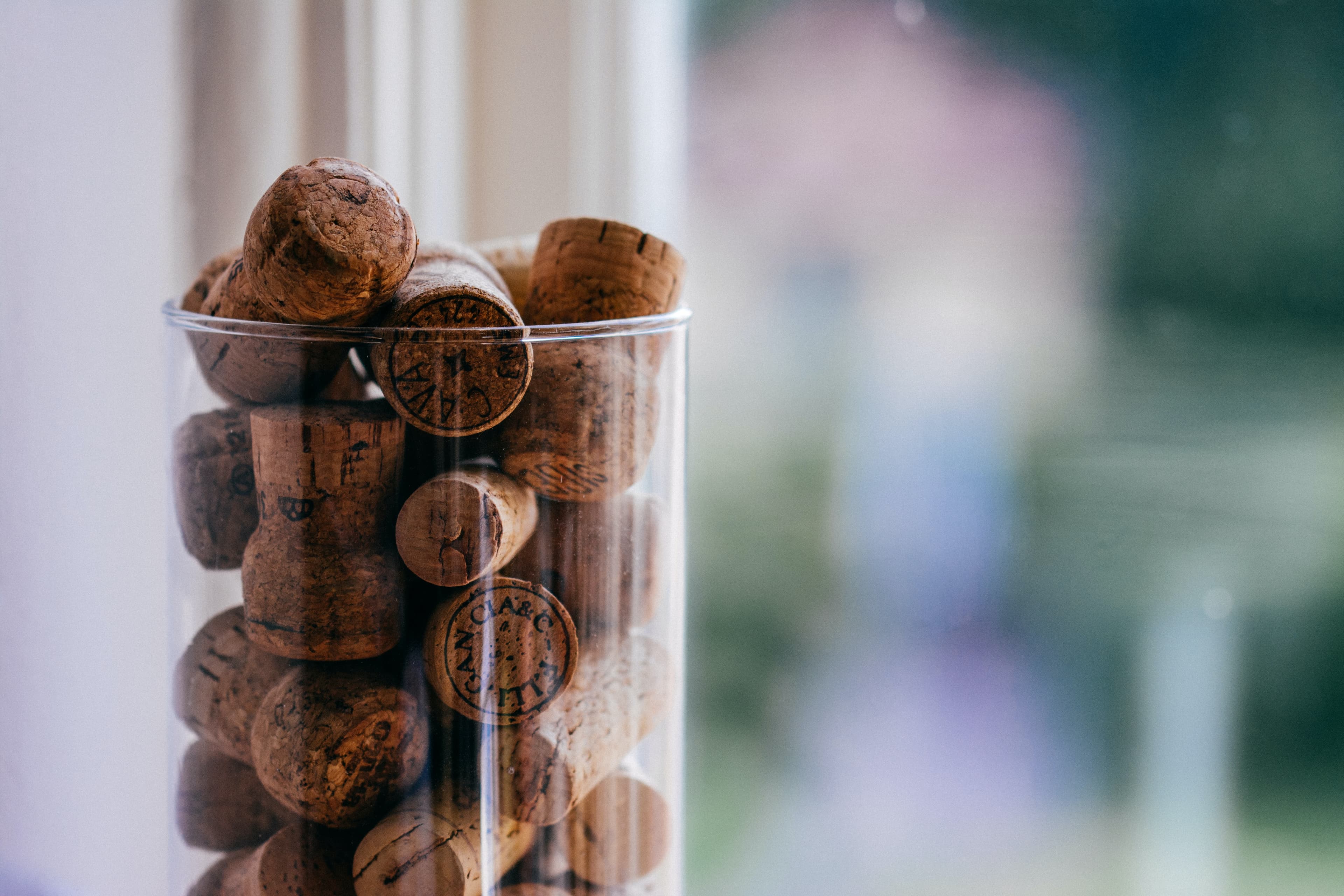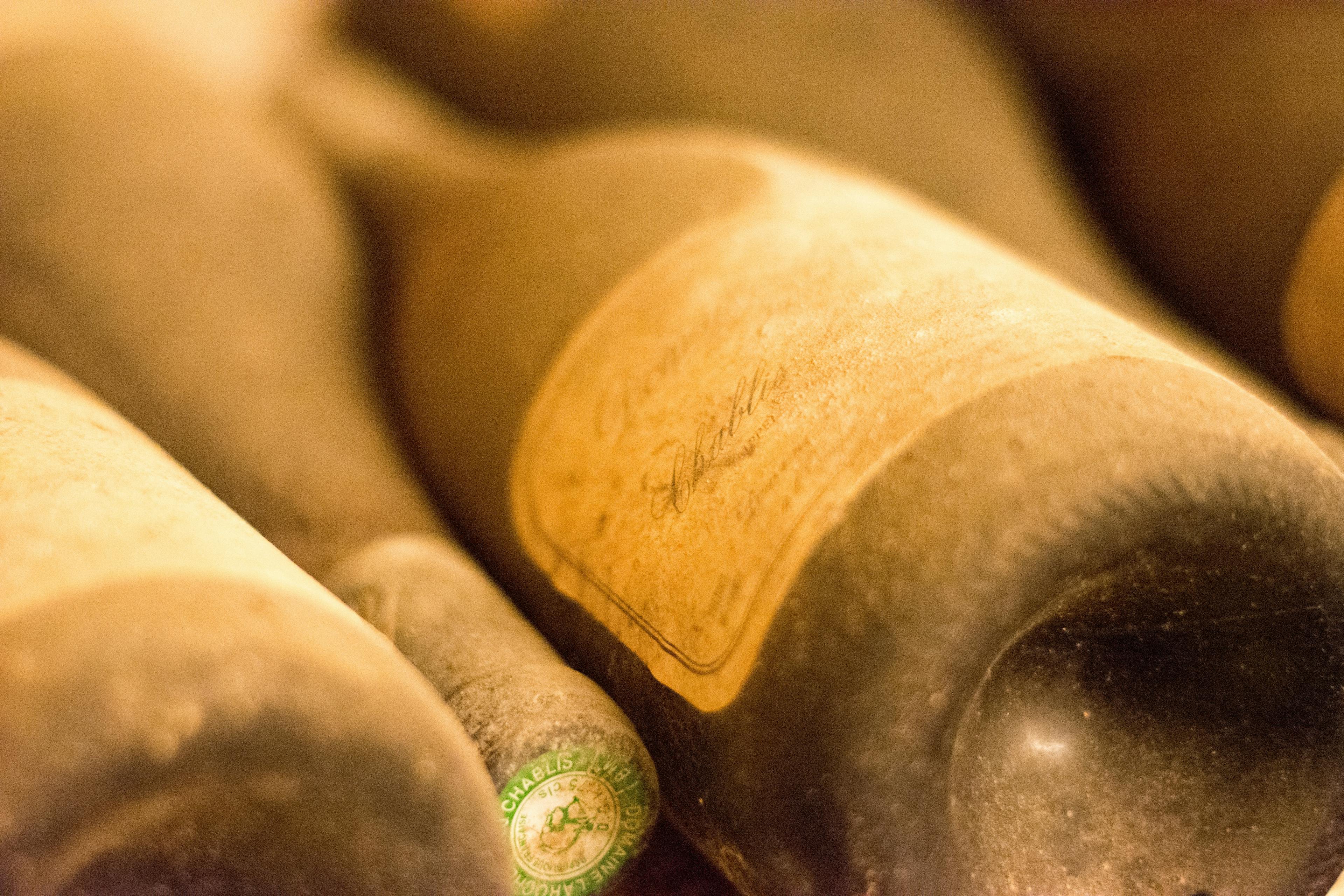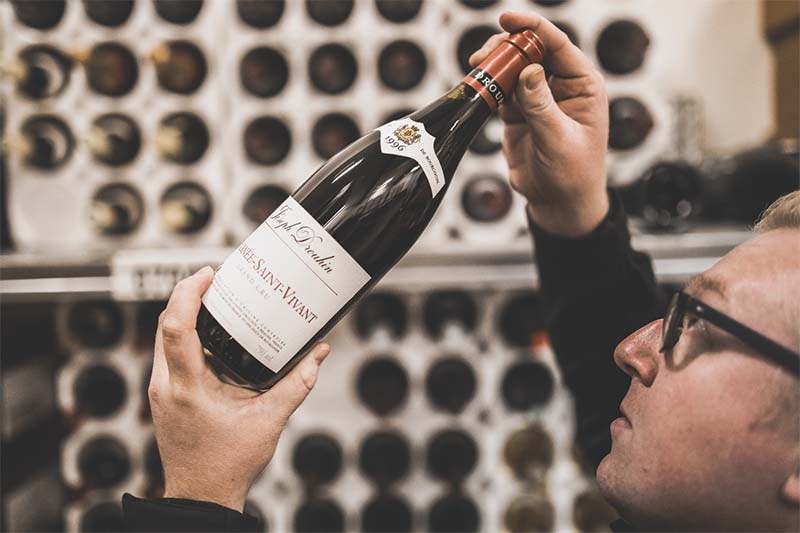Comment le Chateau Margaux a-t-il un goût ?
12 min de lecture
Head of Content

Chateau Margaux se dresse comme un modèle d'excellence viticole, renommé pour son bouquet complexe et ses saveurs profondes et engageantes. Niché dans la région de Bordeaux en France, ce prestigieux domaine viticole produit certains des vins les plus convoités au monde depuis des siècles. Le goût de Chateau Margaux est souvent décrit comme un mélange harmonieux de notes puissantes et délicates, présentant des couches de fruits noirs, des touches de vanille et une finale soyeuse et durable. Les amateurs de vin et les connaisseurs apprécient chaque gorgée, analysant l'équilibre complexe et l'évolution des saveurs qui se dévoilent avec l'âge. Cette introduction plongera dans les expériences sensorielles et les notes de dégustation qui définissent ce vin emblématique.
Profil d'un Chateau Margaux Classique : Notes de Saveur Clés
Chateau Margaux, l'un des vins les plus illustres de Bordeaux, présente un profil de saveur complexe et raffiné qui captive les connaisseurs et les buveurs occasionnels. Ce vin est renommé pour son élégance et sa profondeur, qui s'expriment à travers une symphonie de goûts et d'arômes soigneusement équilibrés. Voici quelques notes de saveur clés qui définissent les caractéristiques d'un Chateau Margaux classique :
Cassis et Cerise : Ces saveurs de fruits primaires sont vives et prononcées, offrant une douceur juteuse et mûre qui est typique des vins de Margaux.
Violettes et Roses : Les notes florales ajoutent une qualité délicate, presque éthérée au bouquet, rehaussant la complexité du vin.
Vanille et Cèdre : Le vieillissement en fûts de chêne contribue des touches de vanille et de cèdre, fournissant une note chaude et épicée qui complète la fruité.
Tabac et Terre : À mesure que le vin mûrit, il développe des tons plus riches et terreux, y compris le tabac et la truffe, qui complètent l'expérience de dégustation.
Fins Tanins : Les tanins dans Chateau Margaux sont particulièrement fins et bien intégrés, assurant une texture lisse et soyeuse qui est une marque de fabrique des vins du domaine.
Chaque gorgée de Chateau Margaux révèle ces couches de saveurs, en faisant un vin véritablement mémorable qui continue d'évoluer dans le verre.
L'Influence du Terroir sur le Goût de Chateau Margaux
L'influence du terroir sur le goût de Chateau Margaux est profonde, façonnant son profil de saveur unique que les amateurs de vin apprécient. Le terroir fait référence aux conditions environnementales, en particulier le sol et le climat, dans lesquels les raisins sont cultivés et comment ces facteurs affectent le goût du vin. Chateau Margaux, situé dans la région de Bordeaux en France, bénéficie d'un terroir exceptionnel qui contribue à son goût distinctif.
Composition du Sol : Le sol du vignoble est riche en gravier, ce qui offre un excellent drainage et reflète la lumière du soleil, aidant à la maturation des raisins. Cela donne des raisins qui sont non seulement sucrés mais maintiennent également une acidité nécessaire, contribuant à l'équilibre du goût du vin.
Microclimat : Le microclimat spécifique de Chateau Margaux comprend des températures modérées et une lumière solaire adéquate, qui sont cruciales pour la maturation lente et uniforme des raisins. Cela conduit à une complexité de saveurs qui est caractéristique des vins de Chateau Margaux.
Techniques Traditionnelles de Vinification : Bien que ce ne soit pas un aspect direct du terroir, les méthodes traditionnelles utilisées dans la production de vin à Chateau Margaux fonctionnent en harmonie avec le terroir pour améliorer les qualités du vin. Ces méthodes permettent à la véritable expression du terroir de se manifester dans le vin.
Pour des faits plus détaillés sur la façon dont le terroir de Chateau Margaux influence son goût, explorer des éléments spécifiques peut fournir des aperçus plus profonds sur l'attrait de ce vin prestigieux.
Potentiel de Vieillissement : Comment le Goût Évolue avec le Temps
Chateau Margaux est renommé non seulement pour son attrait immédiat mais aussi pour son remarquable potentiel de vieillissement, qui permet à ses saveurs d'évoluer et de s'approfondir avec le temps. Cette évolution est un aspect clé du caractère du vin, en faisant un favori parmi les collectionneurs et les passionnés. Voici comment le goût de Chateau Margaux se développe avec l'âge :
Phase Initiale (1-10 ans) : Dans sa jeunesse, Chateau Margaux affiche généralement des arômes vibrants de fruits noirs comme le cassis et la cerise, complétés par des touches de vanille et d'herbes fraîches. Les tanins sont robustes mais finement granulés, offrant un palais structuré mais accessible.
Phase Intermédiaire (10-30 ans) : À mesure que le vin mûrit, les saveurs de fruits intenses commencent à s'adoucir, et des notes secondaires de cuir, de fumée et de terre émergent. La texture devient plus lisse, et les tanins s'intègrent plus pleinement avec l'acidité naturelle du vin, menant à un profil plus équilibré.
Phase Ultérieure (30 ans et plus) : Dans cette phase, Chateau Margaux montre souvent une complexité remarquable avec un bouquet de fruits secs, de tabac et de truffe. La structure du vin s'adoucit encore, offrant une sensation en bouche soyeuse qui est très prisée parmi les connaisseurs.
Comprendre l'histoire de Chateau Margaux peut fournir un aperçu plus profond sur pourquoi ce vin développe une telle complexité au fil du temps, influencé par des siècles d'expertise en vinification et le terroir unique de l'appellation Margaux.
L'Impact de la Variation des Millésimes sur la Saveur
L'impact de la variation des millésimes sur la saveur de Chateau Margaux ne peut être sous-estimé. Chaque année, les conditions climatiques spécifiques influencent les caractéristiques du vin produit. Des facteurs tels que la température, les précipitations et les heures d'ensoleillement jouent un rôle crucial dans la détermination de la qualité et du goût du vin. Par exemple :
Années Plus Fraîches : Résultent généralement en vins avec une acidité plus élevée et des tanins plus structurés, nécessitant souvent un vieillissement plus long pour atteindre leur apogée.
Années Plus Chaudes : Ces millésimes produisent généralement des vins plus accessibles dès le départ, avec des saveurs de fruits plus riches et plus mûres et des tanins plus doux.
Années Humides : Des pluies excessives peuvent conduire à des vins moins concentrés, augmentant potentiellement le risque de maladies dans les vignobles, ce qui affecte la qualité globale.
Années Sèches : Produisent souvent des vins plus concentrés. Cependant, une sécheresse extrême peut stresser les vignes, conduisant potentiellement à des vins déséquilibrés.
Comprendre ces variations peut grandement améliorer l'appréciation des millésimes populaires. Chaque millésime porte sa signature unique, reflétant non seulement le terroir du domaine Chateau Margaux mais aussi les défis et les triomphes de sa saison de croissance respective.
Expérience Sensorielle : Arôme, Corps et Finale
Chateau Margaux offre une expérience sensorielle à la fois complexe et envoûtante, en faisant un favori parmi les connaisseurs de vin. L'arôme de Chateau Margaux est généralement riche avec des couches qui peuvent inclure des fruits noirs comme le cassis et la cerise, ainsi que des touches de vanille et d'épices aromatiques en raison de son vieillissement en fûts de chêne. Ce bouquet prépare le terrain pour l'expérience profonde d'apprécier ce vin prestigieux.
Le corps de Chateau Margaux est tout aussi impressionnant, caractérisé par sa sensation en bouche soyeuse et bien arrondie qui équilibre intensité et élégance. La structure est robuste, mais elle maintient une harmonie gracieuse qui permet aux saveurs de se déployer magnifiquement à mesure qu'elles se déplacent sur le palais.
La finale de Chateau Margaux est longue et mémorable, souvent persistante pendant plusieurs minutes. Les notes clés qui peuvent être détectées incluent :
Une légère minéralité qui ajoute à la complexité
Des touches subtiles de chêne et de tabac, qui reflètent son processus de maturation
Une acidité rafraîchissante qui fournit une fermeture nette, invitant à une autre gorgée
Cette combinaison d'arôme, de corps et de finale garantit que chaque dégustation est un voyage unique à travers son profil de saveur sophistiqué.
Comparer Chateau Margaux Jeune vs. Vieilli
En explorant les nuances entre le jeune et le vieux Chateau Margaux, l'influence de l'artisanat devient évidente dans plusieurs aspects sensoriels :
Fruité : Les vins jeunes de Chateau Margaux se distinguent par leurs saveurs de fruits frais et vibrants, souvent rappelant le cassis et la cerise. À mesure que le vin vieillit, ces saveurs primaires évoluent vers des notes plus complexes de fruits secs et d'épices, montrant une transition gracieuse influencée par le temps et des processus de vieillissement soigneux.
Structure des Tanins : Dans sa jeunesse, Chateau Margaux présente des tanins robustes qui sont à la fois saisissants et structurés. Au fil des ans, ces tanins s'adoucissent, menant à une sensation en bouche plus lisse et plus veloutée. Ce changement est un témoignage du régime de vieillissement méticuleux que le vin subit, mettant en avant l'équilibre habile du temps et de la technique.
Complexité Aromatique : Le profil aromatique d'un jeune Chateau Margaux est généralement simple avec des touches florales et de baies. Avec l'âge, le vin développe une complexité aromatique plus large qui inclut des tons terreux, du cuir et du tabac, reflétant le superposition complexe de senteurs que seules des années en cave peuvent atteindre.
Profondeur de Couleur : Initialement, le vin affiche une couleur rubis profonde et riche qui s'estompe progressivement vers une teinte brique plus claire à mesure qu'il mûrit. Cette transformation visuelle est un autre indicateur du parcours du vin à travers le temps, influencé par le soin apporté à l'élaboration et aux conditions de stockage.
Chaque bouteille de Chateau Margaux, qu'elle soit jeune ou vieillie, raconte une histoire de soin méticuleux et de tradition, offrant une expérience de dégustation unique qui reflète son héritage et l'impact profond du temps sur son caractère.
Le Rôle du Chêne : Comprendre Son Influence sur le Goût
Le vieillissement en chêne est un facteur critique dans la formation du profil de saveur de Chateau Margaux, l'un des vins les plus estimés au monde. Lorsque le vin est vieilli en fûts de chêne, il subit une transformation qui impacte significativement son goût, sa texture et sa complexité. Le chêne infuse une variété de saveurs qui ne sont pas présentes dans la phase de fermentation initiale du vin.
Infusion de Saveur : Les fûts de chêne contribuent des composés aromatiques comme la vanilline, qui donne un parfum subtil de vanille, et des tanins, qui ajoutent à la structure et à la longévité du vin. Ces éléments sont cruciaux pour définir le profil de saveur sophistiqué de Chateau Margaux.
Oxydation : À mesure que le vin vieillit en chêne, de petites quantités d'oxygène sont autorisées à interagir avec le vin, un processus qui aide à adoucir les tanins. Cette oxydation contrôlée entraîne un goût plus lisse et plus arrondi.
Complexité et Profondeur : Plus le vin reste en contact avec le chêne, plus il gagne en complexité. Le chêne influence le caractère du vin, ajoutant des couches de profondeur qui s'expriment sous forme d'arômes et de saveurs secondaires et tertiaires.
Vieillir correctement le vin en fûts de chêne est un art qui nécessite précision et expertise. Pour s'assurer que votre Chateau Margaux développe ces qualités désirables, il est essentiel de le stocker dans des conditions optimales.
Déguster Chateau Margaux : Un Guide pour Débutants
Lorsque vous vous lancez dans le délicieux voyage de la dégustation de Chateau Margaux, les débutants devraient prêter une attention particulière à l'harmonie entre le vin et leurs accords culinaires choisis. Les saveurs complexes de Chateau Margaux, caractérisées par sa fruité profond et ses tanins raffinés, en font un excellent candidat pour diverses combinaisons culinaires. Voici quelques accords idéaux pour améliorer votre expérience de dégustation :
Viandes Rouges Rôties : La structure robuste de Chateau Margaux s'accorde merveilleusement avec les viandes rouges. Un classique rôti d'agneau ou de bœuf fait ressortir les notes de baies dans le vin.
Légumes Grillés : Pour une option plus légère, des légumes grillés comme les poivrons et les courgettes peuvent compléter les notes herbacées subtiles du vin.
Fromages Matures : Un plateau de fromages affinés, comme le Gouda ou le cheddar, peut équilibrer la complexité du vin et ajouter une texture crémeuse au palais.
Chocolat Noir : Pour ceux qui ont un penchant pour le sucré, le chocolat noir peut rehausser les couches profondes et veloutées de Chateau Margaux, offrant une finition luxueuse à votre repas.
Choisir le bon plat pour accompagner Chateau Margaux peut transformer votre dégustation en une aventure gastronomique exquise.
Descriptions d'Experts : Comment les Sommeliers Décrivent Chateau Margaux
Chateau Margaux, un domaine viticole de premier plan de Bordeaux, France, est souvent décrit par les sommeliers avec une révérence réservée aux meilleurs vins. Son bouquet complexe et son palais sophistiqué en font un vin remarquable lors de toute dégustation. Voici quelques façons dont les experts caractérisent ce vin illustre :
Complexité Aromatique : Les sommeliers notent souvent d'abord la complexité aromatique de Chateau Margaux. Il exhale généralement des couches riches de mûre, de cerise et de prune, entrelacées de touches de violettes et de lilas. Les arômes secondaires incluent des notes subtiles de vanille et de cèdre, acquises lors de son processus de vieillissement en fûts de chêne.
Structure du Palais : En bouche, Chateau Margaux est connu pour sa sensation en bouche soyeuse et bien arrondie. Les tanins sont moelleux mais structurés, offrant un équilibre à la fois puissant et élégant. Ce vin présente un mélange harmonieux de fruits et d'acidité, menant souvent à une longue finale persistante qui continue de se développer avec l'âge.
Polyvalence dans l'Accord : La polyvalence de ce vin en fait un favori pour les accords avec la nourriture. Il complète tout, des viandes rouges et du gibier aux sauces complexes et fromages affinés. Le bon accord améliore à la fois le vin et le plat, créant une expérience culinaire mémorable.
Pour ceux qui cherchent à apprécier Chateau Margaux à son meilleur, comprendre comment le servir correctement est crucial. La température, le décantage et la verrerie peuvent tous influencer l'expérience de dégustation, mettant en avant le caractère prestigieux du vin.
Idées d'Accords : Améliorer le Goût par le Choix des Aliments
Chateau Margaux, un vin renommé de la région de Bordeaux en France, est célébré pour ses saveurs complexes et son équilibre aromatique. Pour améliorer l'expérience de dégustation, il est crucial de l'accorder avec le bon plat. Voici quelques idées d'accords idéales :
Viande Rouge : Les tanins dans Chateau Margaux se marient bien avec la teneur en graisse des viandes rouges. Un accord classique est un steak grillé ou des côtelettes d'agneau, qui complètent la structure et les sous-tonalités fruitées du vin.
Légumes Terrestres : Les plats mettant en avant des champignons, des truffes ou des légumes racines peuvent mettre en valeur les notes terreuses de Chateau Margaux. Essayez un risotto aux champignons ou une salade de betteraves rôties pour faire ressortir les saveurs subtiles du vin.
Sauces Riches : Les aliments avec des sauces riches et crémeuses comme une béarnaise ou une réduction de vin rouge peuvent équilibrer la nature robuste de Chateau Margaux. Envisagez de l'accorder avec des plats comme un filet mignon ou un magret de canard dans une sauce de réduction de vin.
Fromages Affinés : La complexité de Chateau Margaux se marie bien avec des fromages affinés. Optez pour des fromages comme le Gruyère, le cheddar affiné ou le Manchego, qui peuvent soutenir la profondeur du vin et rehausser ses notes fruitées.
Chocolat Noir : Pour un accord dessert, le chocolat noir peut être un excellent choix. L'amertume du chocolat complète les tanins du vin, créant un équilibre harmonieux sur le palais.
Ces accords non seulement améliorent les saveurs du vin mais créent également une expérience culinaire plus mémorable.
Conclusion
En conclusion, le goût de Chateau Margaux est un témoignage de son héritage riche et de son processus de vinification méticuleux. Ce vin prestigieux, avec son bouquet complexe et son mélange harmonieux de saveurs, offre une expérience unique qui captive les connaisseurs et les buveurs occasionnels. En explorant le monde des vins fins, rappelez-vous que chaque bouteille de Chateau Margaux n'est pas seulement une boisson mais un morceau d'histoire, élaboré avec passion et précision.
Pour ceux qui cherchent à investir ou à collectionner de tels vins exquis, Rekolt offre une plateforme idéale. Non seulement nous proposons une large sélection de vins fins comme Chateau Margaux, mais nous offrons également une option de stockage professionnel en cave. Ce service garantit que votre vin maintient sa qualité et s'apprécie en valeur au fil du temps, en faisant un choix parfait tant pour l'appréciation que pour l'investissement. Avec Rekolt, vous pouvez facilement acheter, stocker et échanger des vins, appréciant la commodité et la confiance qui viennent avec le savoir que votre vin est entre de bonnes mains. Que vous soyez un collectionneur chevronné ou nouveau dans le monde du vin, Rekolt est votre marché de référence pour tous vos besoins en vin.
Partager cet article
